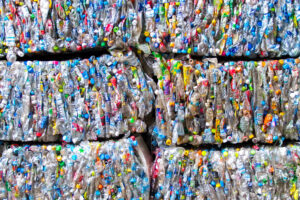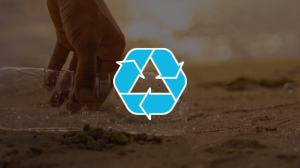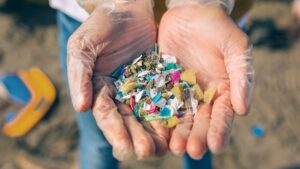U.S. is top contributor to plastic waste, report shows
Scientists reveal the U.S. role in the ‘deluge’ of plastic littering the world’s oceans in a congressionally mandated report.
The United States ranks as the world’s leading contributor of plastic waste and needs a national strategy to combat the issue, according to a congressionally mandated report released Tuesday.
“The developing plastic waste crisis has been building for decades,” the National Academy of Sciences study said, noting the world’s current predicament stems from years of technological advances. “The success of the 20th century miracle invention of plastics has also produced a global scale deluge of plastic waste seemingly everywhere we look.”
The United States contributes more to this deluge than any other nation, according to the analysis, generating about 287 pounds of plastics per person. Overall, the United States produced 42 million metric tons of plastic waste in 2016 — almost twice as much as China, and more than the entire European Union combined.
“The volume is astounding,” said Monterey Bay Aquarium’s chief conservation and science officer, Margaret Spring, who chaired the NAS committee, in an interview.
The vast majority of plastics are made from fossil fuels, and some can take hundreds of years to decompose.
The researchers estimated that between 1.13 million to 2.24 million metric tons of the United States’ plastic waste leak into the environment each year. About 8 million metric tons of plastic end up in the ocean a year, and under the current trajectory that number could climb to 53 million by the end of the decade.
That amount of waste would be the equivalent to “roughly half of the total weight of fish caught from the ocean annually,” the report said.
Congress last year ordered the National Academy of Sciences study, which drew on expertise from American and Canadian institutions, when it passed Save Our Seas 2.0 in an effort to address plastic waste.
“This report is a sobering reminder of the scale of this problem,” the legislation’s co-author, Sen. Dan Sullivan (R-Alaska), said in a statement. “The research and findings compiled here by our best scientists will serve as a springboard to our future legislative efforts to tackle this entirely solvable environmental challenge and better protect our marine ecosystems, fisheries, and coastal economies.”
Sen. Sheldon Whitehouse (R.I.), the law’s primary Democratic sponsor, said, “I look forward to working with colleagues on both sides of the aisle to keep making progress cleaning up this harmful mess.”



